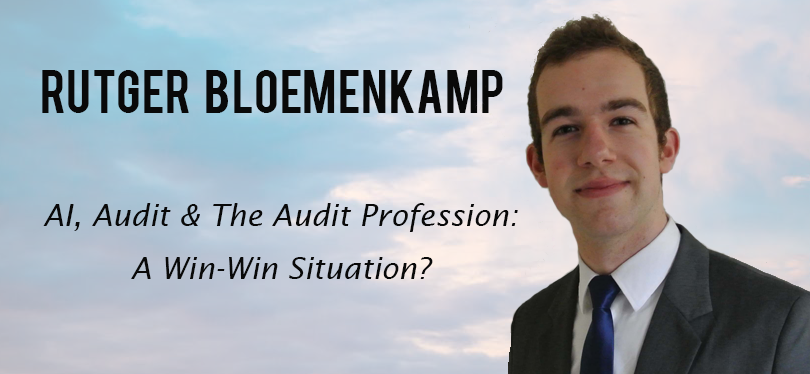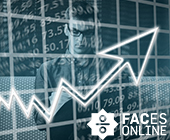For the Dutch version, click here. BlackRock is the world's largest asset manager, founded in 1988 and based in New York City. It manages

Nowadays, artificial intelligence (AI) is not the futuristic idea that was present in famous movies a few decades ago. It is now increasingly implemented and accepted by the public as a present reality. Furthermore, a considerable number of corporations are starting to use AI to reach a more efficient balance with core operations.
Accountancy firms are tailoring their business concepts by slightly implementing AI. Many accounting firms are beginning to use AI oriented programmes to handle tax, bookkeeping, and auditing-oriented services. This will lead to more efficient practices, which will result in higher quality and a more satisfied client.
However, AI has some disadvantages. It replaces the functions of lower and mid-level workers in the accounting field. Moreover, the current roles of highly educated tax consultants and auditors will be completely changing. Instead, data analysts, programmers and continuous auditors are roles that are expected to be widely found in tomorrow’s accounting profession.
All things considered, is AI really a great step forward?
AI in Accounting
The role of the accountant changes every single decade. AI is just one of many factors that will shape the accounting profession of tomorrow.
The accountant of tomorrow will probably be more focused on consulting, business innovation, advisory, and risk management. Whereas, AI will probably do information analysis, report preparation, bookkeeping, and transaction analysis in order to help accountants improve their quality of reporting and decision-making.
AI will do the cumbersome tasks, while accountants can focus on giving advice and taking on higher-value responsibilities. In the near future, AI will probably do the entire reviewing process of a business.
Assurance and compliance are the areas that benefited the most from tools like data mining. By taking this into account, it is even further expected that AI will take a tremendously beneficial role in the near future. Moreover, the AICPA and IIA indicated that data mining is in their top 10 and top 4, respectively in terms of technological priorities. AI can be used to enhance the data mining process in the near future.
Tax-wise, AI will be able to compare current business activities with rules and regulations. Consequently, corporations will become more advantageous in terms of tax filings and returns. AI will reveal accounting and tax updates from day-to-day and the accountant of tomorrow will still need to use their expertise to decide on the analysis provided.
AI in Auditing
AI will also have a positive impact on the audit profession. AI is likely to replace a considerable amount of human audit tasks that requires a lot of time at present. Document review tasks, which demand a lot of time, are especially ideal for AI.
AI can review a tremendous amount of contract pages in a short time period. It will quickly check certain key items and highlights items that could be materially misstated, either intentionally or unintentionally. This is extremely useful for the audit profession. Additionally, AI will learn from each separate document review. This will improve its’ capabilities every time a document review is performed.
Furthermore, auditors will be expected to move their attention to advanced analytics that is beyond AI. It is even probable that this attention shift will be reduced over time, because of the knowledge enhancement of AI. Consequently, better insights will be given. Moreover, better professional judgement will be applied, which will in the end result in a higher quality audit report. This audit report will lead to more trust from investors and stakeholders.
The big four accounting firms, especially KPMG, are already commencing the implementation process of AI in their audit engagements and it is expected that more accounting firms will follow. KPMG Australia has a proposal to use IBM’s Watson computation technology to make the audit engagements more efficient. Hereby, the limitation of sample sizes is a past shortcoming, as IBM’s Watson is able to analyse an unlimited sample size and can analyse all the financials belonging to a specific corporation.
This will not only be beneficial for the audit client, but also the audit firm itself, which could probably charge higher audit fees.
So Is AI Replacing Humans?
With all this information being given on AI, it is likely that many people fear that AI will replace jobs related to the profession. However, the US Bureau of Labour Statistics reported that there were 1.2m individuals employed in the US accounting profession in 2016.
Additionally, the accounting profession is expected to grow with 11% in terms of labour over the next ten years. This will result in an extra 142,000 jobs in accounting and auditing in the US. Partly, this growth can be explained by the retirement of the “Boomer” generation; however, this is just a single factor that has an influence on the growth number.
In the end, AI will have an incredibly positive impact on the accounting and auditing profession. Against a considerable amount of expectations, AI has a beneficial direction for the employment numbers as well. Structurally, the whole profession will change. The auditor, accountant, bookkeeper, or tax consultant of today is the data scientist or data consultant of tomorrow.
Right now, some companies are already hiring people who have experience with data handling, modelling techniques, and software skills related to AI. Therefore, it is highly probable that the accounting and auditing profession of tomorrow will be an environment where employees are data experts who use AI as a supporting, time-saving tool that will increase the quality of the service being provided.






















